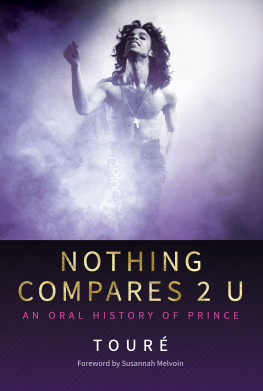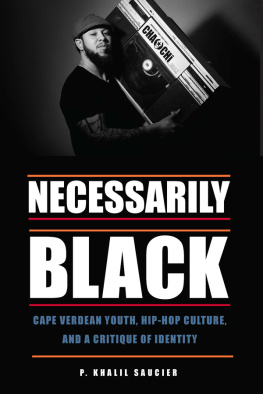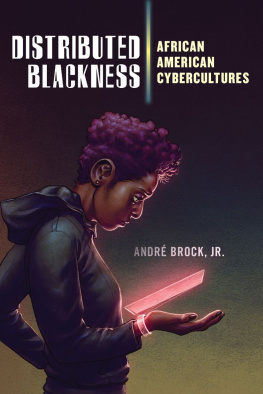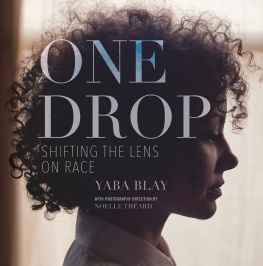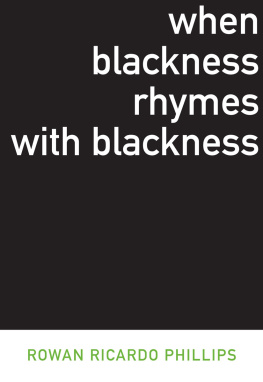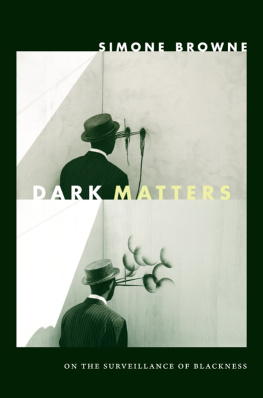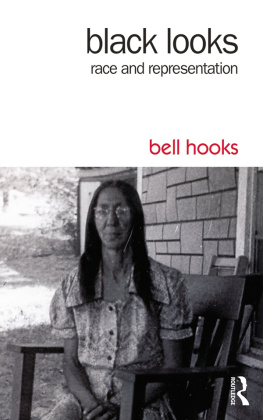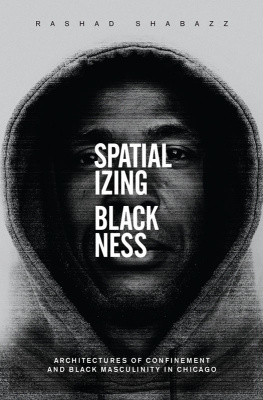

Thank you for purchasing this Simon & Schuster eBook.
Sign up for our newsletter and receive special offers, access to bonus content, and info on the latest new releases and other great eBooks from Free Press.
or visit us online to sign up at
eBookNews.SimonandSchuster.com


Also by Tour

Never Drank the Kool-Aid: Essays
Soul City: A Novel
The Portable Promised Land: Stories


Free Press
A Division of Simon & Schuster, Inc.
1230 Avenue of the Americas
New York, NY 10020
www.SimonandSchuster.com
Copyright 2011 by Tour
All rights reserved, including the right to reproduce this book or portions thereof in any form whatsoever. For information address Free Press Subsidiary Rights Department, 1230 Avenue of the Americas, New York, NY 10020
First Free Press hardcover edition September 2011
FREE PRESS and colophon are trademarks of Simon & Schuster, Inc.
The Simon & Schuster Speakers Bureau can bring authors to your live event. For more information or to book an event contact the Simon & Schuster Speakers Bureau at 1-866-248-3049 or visit our website at www.simonspeakers.com .
Designed by Carla Jayne Jones
Manufactured in the United States of America
10 9 8 7 6 5 4 3 2 1
Library of Congress Cataloging-in-Publication Data
Tour,
Whos afraid of post-blackness? : what it means to be black now / by
Tour ; foreword by Michael Eric Dyson.
p. cm.
Includes bibliographical references and index.
alk. paper)
1. African AmericansRace identity. 2. United StatesRace relations. 3. African AmericansPsychology. I. Title.
E185.625.T68 2011
305.896073--dc22 2010042788
ISBN 978-1-4391-7755-6
ISBN 978-1-4391-7757-0 (ebook)
Dedicated to everyone who
was ever made to feel
not Black enough.
Whatever that means.
Credits
Credit lines for images throughout the book:
How Much is that Nigger in the Window a.k.a Tompkins Square Crawl, 1991, New York, NY, by James Pruznick. Courtesy of James Pruznick.
Worlds Exposition, by Kara Walker, 1997. Cut paper on wall, approx. 10 x 16 feet. Courtesy of the artist and Sikke Ma Jenkins & Co.
Untitled from Runaways, by Glenn Ligon, 1993.
Condition Report, by Glenn Ligon, 2000.
I talk white, by Rashid Johnson, 2003.
Signed Clarence Thomas Uncle Tom All-Stars Judicial Robe Jersey, by Rashid Johnson, 2006.
Signed Angela Davis Civil Rights All-Stars Throw-back Dashiki Jersey, by Rashid Johnson, 2003.
Colonel Platoff, Alexander the Great, and Ice T Kehinde Wiley. Used by permission.
Authors Note
I have chosen to capitalize the word Black and lowercase white throughout this book. I believe Black constitutes a group, an ethnicity equivalent to African-American, Negro, or, in terms of a sense of ethnic cohesion, Irish, Polish, or Chinese. I dont believe that whiteness merits the same treatment. Most American whites think of themselves as Italian-American or Jewish or otherwise relating to other past connections that Blacks cannot make because of the familial and national disruptions of slavery. So to me, because Black speaks to an unknown familial/national past it deserves capitalization.

Contents

Tour()ing Blackness
by Michael Eric Dyson
M ichael, say that again so I really get your meaning, Oprah asked me. Fifteen hundred of us had gathered in 2007 on the grounds of her magnificent home in Santa Barbara for a swanky bash to raise money for Barack Obamas presidential campaign. As Barack peeled off slightly ahead of us from the private reception before the fundraiser where he and Oprah and Michelle had posed for pictures for the adoring throng, I walked arm-in-arm with Oprah on the way to the main event and repeated my standard defense of Obama within earshot of the future commander-in-chief.
When it comes to defending Barack against the charge that hes not Black enough, I tell folk, Well, Ive known him for over fifteen years, and what Ive noticed is that hes proud of his race, but that doesnt capture the range of his identity. Hes rooted in, but not restricted by, his Blackness.
Thats the phrase, Michael, Oprah enthused as she mouthed it back to me. Rooted in, but not restricted by, his Blackness. Yes, thats it. Dont you think so, Barack?
Barack nodded his assent, and in typically self-effacing fashion, deflected attention from his achievement and praised my idea with charming vernacular.
Michael can come up with some words now, Obama let on as he flashed that famous megawatt smile. That brother knows how to turn a phrase.
Perhaps the words resonated for Oprah because shed used the same tack in her life and career. Decades before Obama seized the universe by its throat and spoke his way to the Oval Office, Oprah had to negotiate a white world that had little understanding or use for a Black woman who quickly became the globes dominant media personality. She ruffled a lot of Black feathers by turning Blackness inside out and allowing it to breathe in the white world on its own with little explanation or apology.
Like most Black folk, Oprah found the batteries of Blackness included at birth, and ripped open the packaging and slid them in and started using the instrument of race before reading the manuala long, historic, episodic, vastly complicated, genre-blending, shape-shifting, anatomy-defying, ramshackle, improvisational, antiphonal, allusive, radiant, dense, formal, informal, contradictory text composed from slavery forward in bits and pieces in essays, books, tracts, sermons and orations, in verses and stanzas, in solos and choruses, in blues bits and lingering lullabies, in dirges and ditties, in symphonic, orchestral sweep and staccato jazz strokes, in song and spoken word, in music and lyrics by writers and thinkers, poets and playwrights, preachers and pimps, vocalists and filmmakers, hustlers and Harvard-trained jurists, jive-talkers and juke-jointers, assholes and altruists, civil rights leaders and Black power advocates, beboppers and hip hoppers, fair-headed agitators and faint-hearted assimilators, Afrocentrists and integrationists, and a cast of millions. Oprah and Obama are the latest, if most visible, examples of how Blackness bends to the tongue it tumbles from at any given moment of time.
Next page

